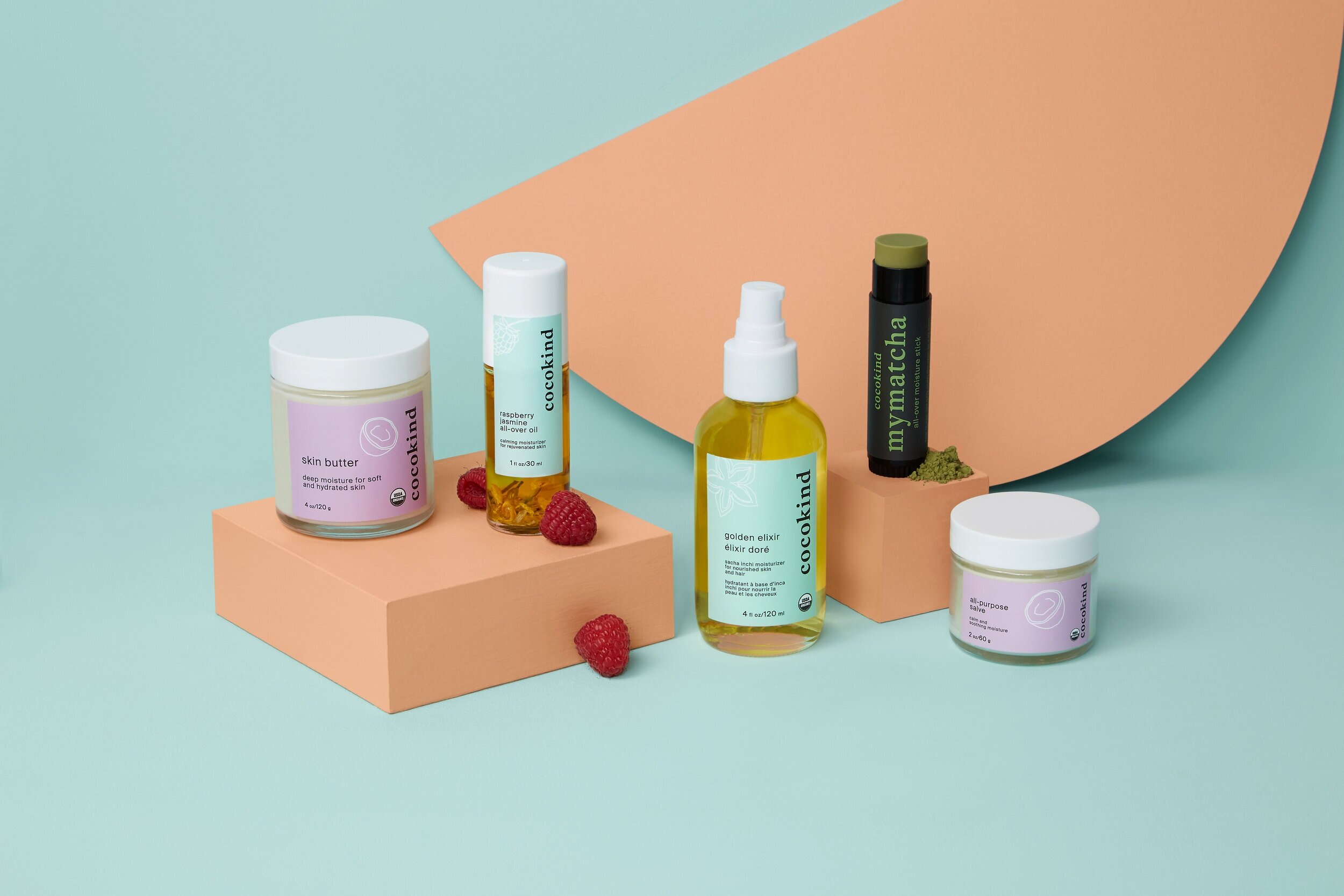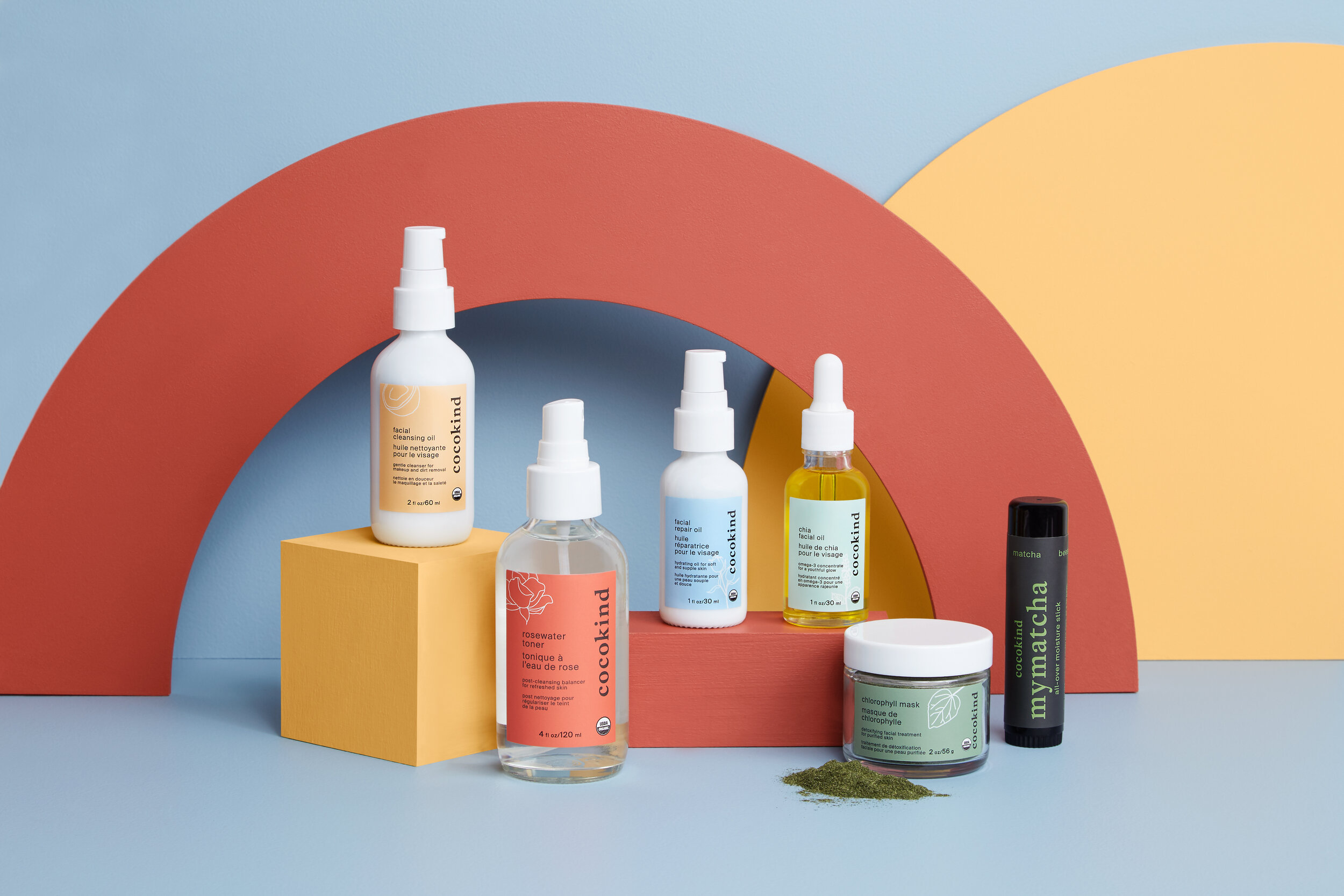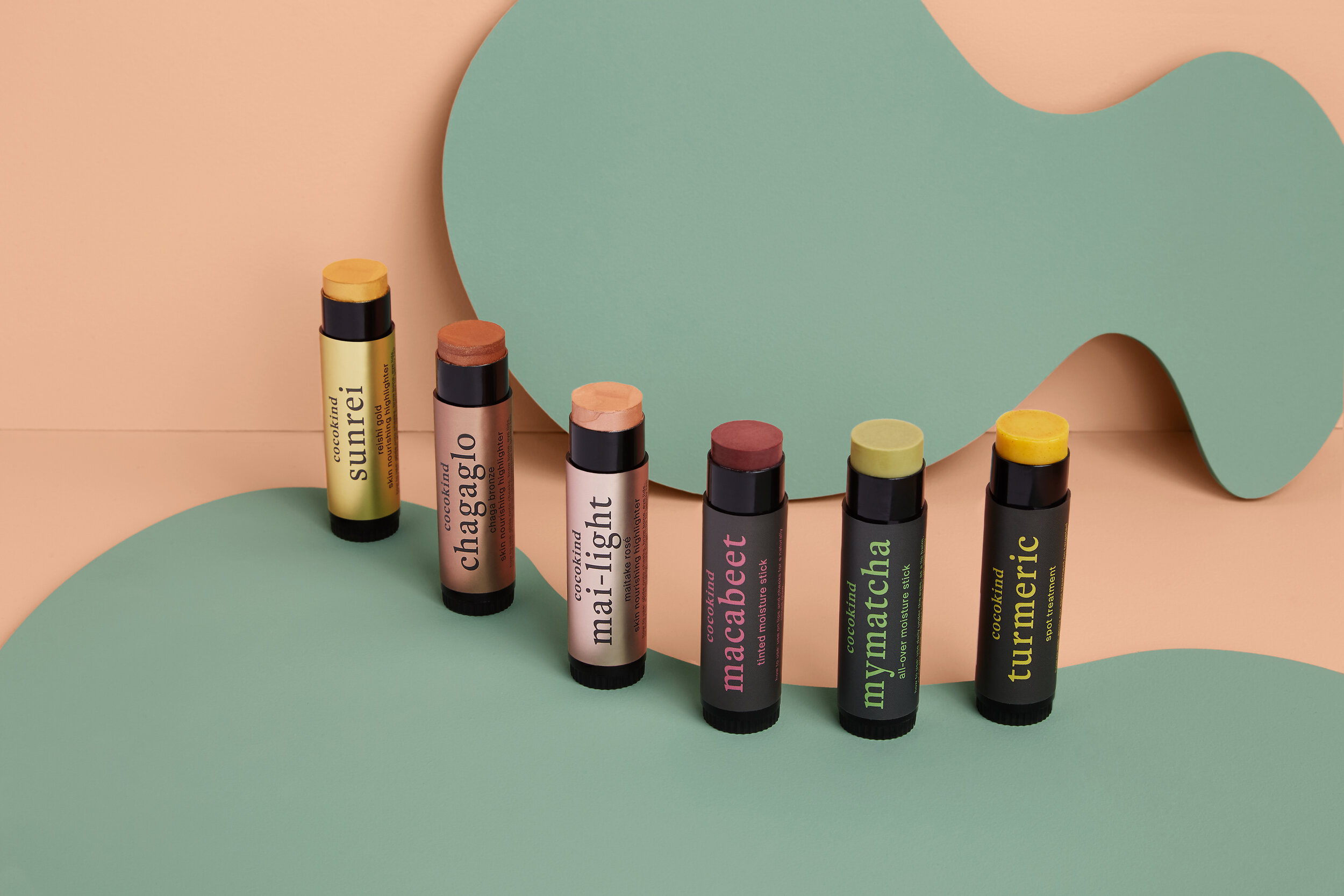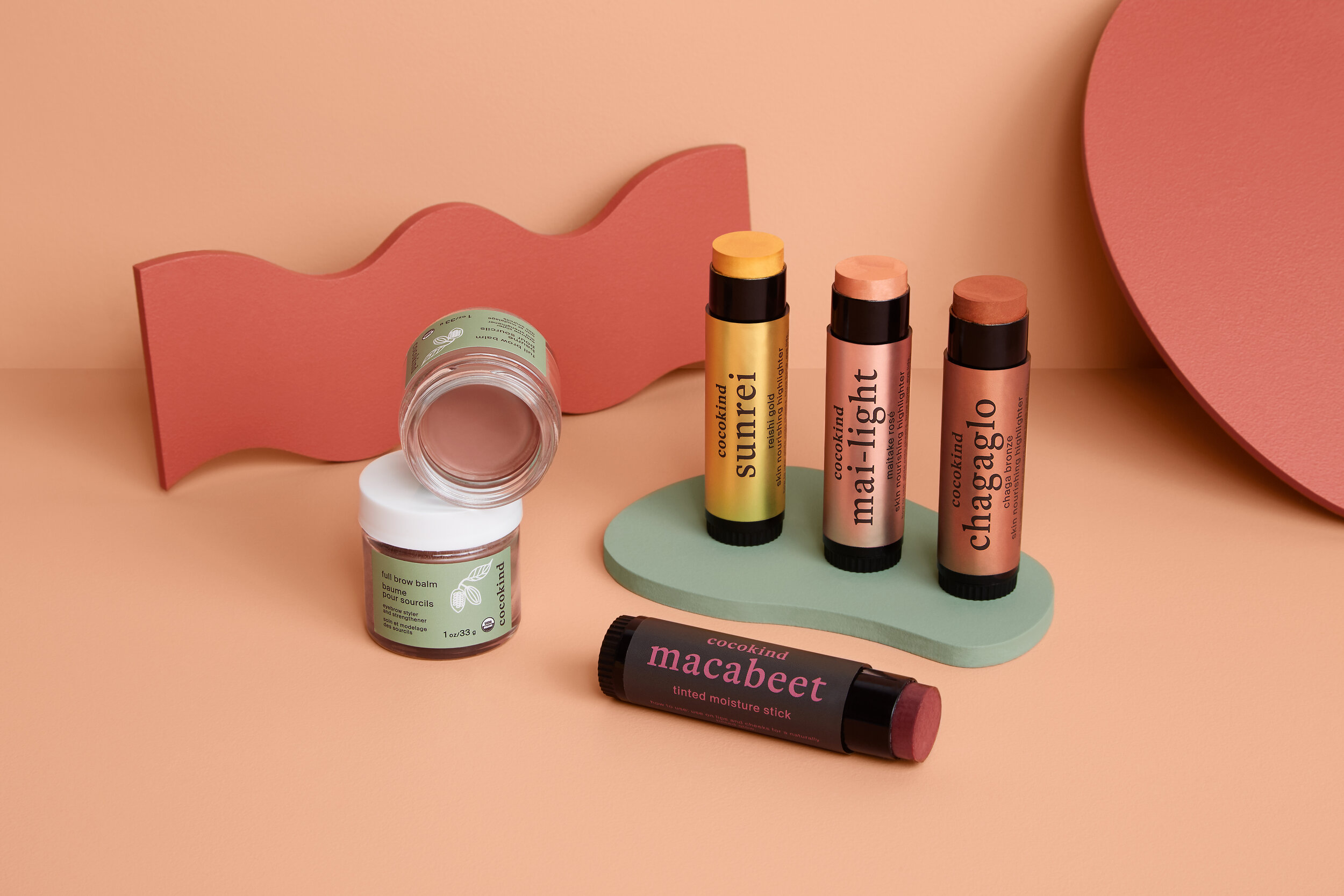This Founder Walked Away From a Steady Wall Street Job to Bootstrap a Clean Beauty Brand
You asked for more content around business finances, so we’re delivering. Welcome to Money Matters where we give you an inside look at the pocketbooks of CEOs and entrepreneurs. In this series, you’ll learn what successful women in business spend on office spaces and employee salaries, how they knew it was time to hire someone to manage their finances, and their best advice for talking about money.
Photo: Courtesy of Cocokind
Leaving a steady job and switching lanes isn’t easy.
Just ask Priscilla Tsai, who was climbing the Wall Street corporate ladder when she decided to shift gears and launch Cocokind, a clean, conscious, sustainable skincare brand. "The first years were tough,” the founder and CEO tells Create & Cultivate. “I was only 25, considered successful in my career, and about to leave it all behind to start a company in an industry that I had very little experience in."
Disappointed by the lack of transparency in the beauty industry and sparked by her own struggles with hormonal acne, Tsai felt compelled to ditch her high-paying job in finance to launch an accessible clean-skincare company. Of course, it’s safe to say that Tsai’s risk has more than paid off—Cocokind is now stocked in every Whole Foods store in the U.S.—but all that success didn’t come without hard work and determination.
In this installment of Money Matters, Tsai shares the nitty-gritty financial details behind what it really takes to get a business off the ground.
CREATE & CULTIVATE: You walked away from a career on Wall Street before bootstrapping your business. What led you to leave a steady paycheck and switch lanes from finance to beauty?
PRISCILLA TSAI: I always knew I wanted to start my own company. My mom is an entrepreneur and watching her career progress definitely inspired me. Separately, my hormonal acne was my biggest insecurity, and I hated the harsh medications and pills that my dermatologist prescribed me. They kept my skin technically clear, but they also totally stripped it of moisture and gave me digestion issues. Ultimately, I decided to explore more holistic remedies for my skin and body, and when I’d created something that worked and that I was proud of, I knew I needed to share it. As a consumer, I was also disappointed at the lack of clean ingredients and transparency in the beauty industry, and I felt compelled to offer a better, more accessible option.
Can you explain what those founding years were like financially?
The first years were tough. I was only 25, considered successful in my career, and about to leave it all behind to start a company in an industry that I had very little experience in. I hustled in every way possible. I made full batches of products by myself. I created our first labels on Photoshop instead of hiring a designer.
I think many founders think that they need a ton of capital to start a company. Obviously, capital is important, but for me, time was almost as important as money. It took a lot of time for me to get Cocokind’s formulas to meet my standards, and it took a lot of energy and persistence to get our products into brick and mortar stores. I went door to door to Whole Foods’ in northern California to demo my products to the regional buyers, which led to building great relationships with them. Today, Whole Foods is one of our biggest retailers—we’re actually stocked in every single store in the United States.
“Knowledge is power. Knowing as much as you can about your financial situation is essential to feeling financially empowered and independent.”
Talk us through your bootstrapping process. How did you self-fund your business? Would you recommend that route to other entrepreneurs?
I really just tried to take things one step at a time, but I also worked quickly once I had a product concept and samples. I started going door to door to get my product out there and to start bringing in revenue as quickly as possible. Finding retail partners like Whole Foods helped me get Cocokind off the ground pretty immediately.
These days, it’s much more common to raise than to bootstrap and I think that either strategy can be effective. It’s really just about what the founder wants and which approach makes more sense for their work style and personality. I personally loved bootstrapping, but I definitely don’t think it’s for everyone.
How did you know the brand was ready to scale and introduce new products?
At Cocokind, we’ve always been big on social media because it makes it easy to build relationships with customers and hear their opinions and feedback. We’re able to use this feedback to decide what our community and what the market, in general, wants.
In the beginning especially, we funded new products by starting with really small batches—that way, we were never taking huge risks with inventory. On top of that, I thought it’d be better to sell out of a product and have a waitlist than it would be to overproduce a product and potentially run the risk of not selling enough of it.
I guess my main point here is that entrepreneurs should always recognize that their product will most likely change to improve, so over-investing in early iterations can be a bad idea.
“I hustled in every way possible. I made full batches of products by myself. I created our first labels on Photoshop instead of hiring a designer.
”
-Priscilla Tsai, CEO and founder of Cocokind
What was your first big expense as a business owner?
Either insurance or inventory!
How did you decide what to pay yourself?
I didn’t! I didn’t pay myself for the first two years of my business, but I was lucky enough to be able to live off of savings during that time.
How did you decide what to pay employees?
Research. I always want my employees to be paid fairly but as competitively as possible.
What are your top three largest expenses every month?
Payroll, inventory, and rent for our office and warehouse.
How much do you spend on office space?
We’ve always tried to spend 4% of our sales or less on rent. We did recently just relocate to a larger office space so we can continue to grow our staff.
How much are you saving? When did you start being able to save some of your income?
It varies. Saving has always been important to me, even more so when I had a regular job, before starting Cocokind. When I was in college, my parents helped me with my tuition and living expenses as long as I sent them an itemized list of all of my expenses every month. That experience helped me learn how to budget and it also taught me that when you know your numbers, you save more.
“Cash is everything. No matter how much profit your company is bringing in, you need to adhere to a tight cash flow model.”
What apps or software are you using for finances?
I actually just use Excel to track all of my expenses. I don’t have a financial advisor at this time.
Do you wish you’d done anything differently in your financial journey as a business owner?
Nope! I’m really proud of Cocokind and how far we’ve come, and I think we’ve always been responsible with capital.
Why should we all be talking about money?
I think everyone should talk about money. Knowledge is power. Knowing as much as you can about your financial situation is essential to feeling financially empowered and independent.
Do you have a financial mentor?
I don’t. But my parents did and do a great job of teaching me strong values when it comes to my finances and how I think about them, and I’m grateful for that.
What is your best piece of financial advice for new entrepreneurs?
Again, knowledge is power! Knowing your numbers and staying on top of them is crucially important to starting and running a sustainable business.
What is the biggest money lesson you've learned since starting Cocokind?
Cash is everything. No matter how much profit your company is bringing in, you need to adhere to a tight cash flow model. It’s something I’m still learning and always trying to improve upon.
















